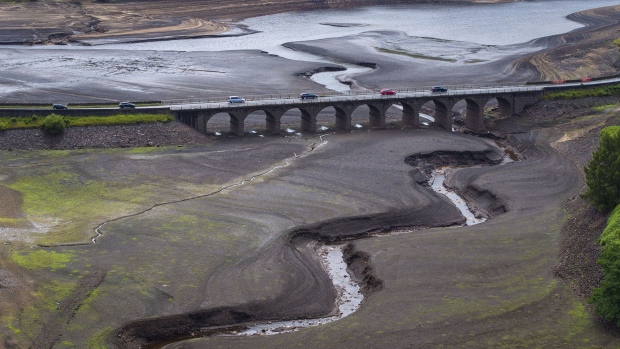Apr 25, 2024
BOE Official Warns Climate Change Shocks May Need Rates Response
, Bloomberg News

(Bloomberg) -- A Bank of England official warned that climate change may trigger large price shocks and force rate-setters to tackle them with higher interest rates.
James Talbot, executive director of the international directorate at the BOE, suggested climate change could become a permanent feature of policymaking and may need to be embedded in the central bank’s forecasting models.
Price shocks from climate change will become harder for “monetary policymakers to look through,” he said in a speech at the National Institute of Economic and Social Research.
The BOE’s work on the climate has been criticized for distracting the central bank from its main goals after inflation soared to double digits. However, the remarks indicate that officials are increasingly considering the effect climate change will have on inflation and interest rates.
“If the shocks become bigger, if they become more frequent, then it becomes harder I think for monetary policymakers to look through those shocks,” Talbot said. “These shocks in the main may give rise to a trade-off that we need to manage.”
He said these shocks will boost inflation by disrupting global supply chains, including for food and goods.
Talbot also said that policies to help economies decarbonise “are likely to increase inflation and inflation volatility in the near term,” with investment in green policies threatening to increase demand.
The UK’s main political parties have taken opposing views on the importance of the climate for the BOE.
Governor Andrew Bailey has said the central bank has reduced the resources put into climate work after Chancellor of the Exchequer Jeremy Hunt downgraded the emphasis on it in the Financial Policy Committee’s remit last year. Meanwhile the opposition Labour Party has promised to reverse the Conservative government’s decision.
©2024 Bloomberg L.P.






